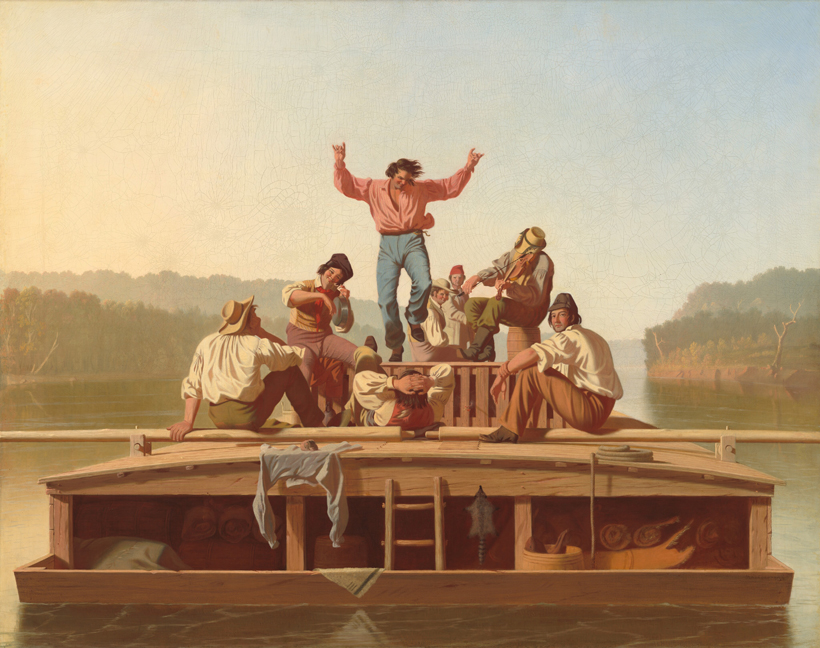While the modern, formalized definition of Thanksgiving as the fourth Thursday in November was not set as a national observance until the time of the Civil War, and wasn’t codified into law until 1941, governors of the various states (and before the Revolution, colonies) proclaimed harvest Thanksgivings each year, so our food traditions around this holiday have a very solid basis in history. This proclamation for a public Thanksgiving was published in the November 16, 1775, New-England Chronicle (Cambridge, MA). Click to enlarge.
A most marvelous source for a menu representative of the Thanksgiving meals served in a wealthy household during the heart of the Revolution can be found in a letter from one Juliana Smith to her cousin Betsey, in 1779. The account first appeared in the 1900 book Colonial Days & Ways, a collection of family papers by Helen Evertson Smith that has since been examined by various experts with skepticism. If we give the author the benefit of the doubt, as the New-York Historical Society suggests we do, its account of a 1779 Thanksgiving is deeply evocative of the hustle and bustle of the celebration, as familiar to modern cooks as it was to our forefathers.
This year it was Uncle Simeon’s turn to have the dinner at his house, but of course we all helped them as they help us when it is our turn, & there is always enough for us all to do. All the baking of pies & cakes was done at our house & we had the big oven heated & filled twice each day for three days before it was all done.
The ongoing war imposed its minor hardships — raisins were unavailable for “Love or Money,” and beef had been completely absent from their tables since the beginning of the war, “as it all must go to the Army & too little they get, poor fellows.”
The tables were heavily laden, despite these challenges. Venison, pork roasts, turkey, goose and pigeon pasties were accompanied by great amounts of vegetables, including a novelty for our letter-writer, celery. In addition, Smith detailed the desserts in a passage that is, again, completely familiar to modern Thanksgiving diners: “The Pumpkin Pies, Apple Tarts & big Indian Puddings lacked for nothing save Appetite by the time we had got around to them.”
There was no wine available to serve with dinner—it needed to be reserved for medicinal purposes—but “good Cider is a sufficient Substitute.”
Perhaps a more accurate account of a Revolutionary War-era Thanksgiving for Continental soldiers is what Pvt. Joseph Plumb Martin later wrote of the 1777 holiday:
But we must now have what Congress said-a sumptuous thanksgiving to close the year of high living we had now nearly seen brought to a close. Well—to add something extraordinary to our present stock of provisions—our country, ever mindful of its suffering army, opened her sympathizing heart so wide, upon this occasion, as to give us something to make the world stare… A half a gill of rice, and a table spoon full of vinegar!!
Happy Thanksgiving to all readers of Journal of the American Revolution. And for those of you strategizing your Black Friday or Cyber Monday shopping, don’t forget the RevWar Geek Gift Guide 2013.










4 Comments
For now, I’ll go along with the NY Historical Society. Thanks for an enjoyable article. If a book like Colonial Days & Ways is dubious, let historians work harder at debunking. I still believe that somewhere in Time, Lydia Childs did go “Over the river and through the snow” to a Thanksgiving dinner even though Thanksgiving wasn’t a real holiday as yet. Happy Thanksgiving to all as I intend to go over the river (East River) and through the woods (Pelham Bay Park–where incidentally John Glover held off a British flanking movement) to my kids’ grandmother’s house. Yippee and bon appetite!
I’d like to have seen what was on George Washington’s table when he declared a thanksgiving in December 1777 for Saratoga.
I am thankful for many things–health, family friends, etc. Intellectually, I have to say this journal and its articles and writers are to be thankful for and thanked. Reading, researching and writing for it keeps me feeling like a student and a humbled one, at that. Even though I don’t comment as such, every contributor should know that I read their articles with interest and enjoyment and often wonder, at least with the repeaters. how the heck do they have time for the research, writing and editing. So, keep it coming and thanks.
Thank you, SPM. Happy holidays to you and your family!